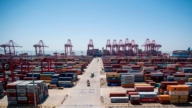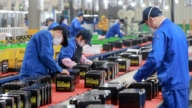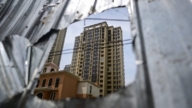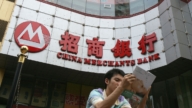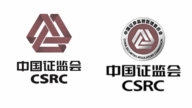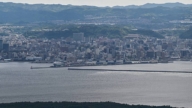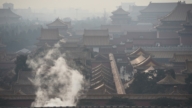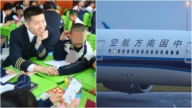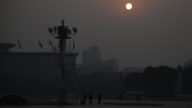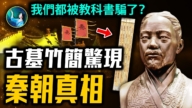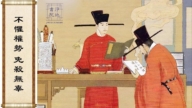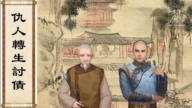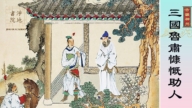【新唐人2013年05月15日讯】10号上午,审计署公布了包括3家国有银行,和9家中央企业的2011年度财务收支审计结果。从审计结果看,这些企业都存在经营和财务问题。不过,这并不是问题的开始,同样,也不是问题的结束。
以“中国移动”为例,不仅被曝光违规给员工发放金额庞大的“隐性福利”;还在招标采购方面存在滋养腐败的灰色空间。另外,在重大经济决策事项上,和内部管理上也存在严重问题。
这次被曝光的隐性福利、招标乱象、违规圈地、虚列项目、虚开发票等问题,实际上已经是中央企业人尽皆知的“顽疾”。同样以“中移动”为例,自从2010年“中国移动”前党组书记张春江被调查以来,“中国移动”至今被调查或者被“双规”的高管已经达到13人之多,还不包括被地方检察院调查,或者接受调查后又重新返回工作的人员。但显然,之前的调查举措并没有收到效果。
指出央企的“顽疾”并不新鲜,新鲜的是,中共这次大规模的报导自家企业的丑事。
北京宪政学者陈永苗:“报导它的丑事,对它的统治来说,未必是一件坏事,而且是一件好事的时候,它一定会报导的。这些罪名都是空而无当的,对它无伤大雅。就像我们下像棋里面一个‘舍卒保车’一样,当对它无关紧要的,痛骂一顿。”
香港专栏政论作家,《大公报》《大周刊》主笔兼新闻部主任朱健国指出,其实中央企业已经成为当局权力派系各自的“封建领地”,因此对央企的打击,可以看出中共背后的动向。
香港专栏政论作家朱健国:“它分封在不同派系,不同的派系它总会有矛盾,那麽强势派就可能去曝光弱势派的一些问题,也就会打着反腐的名义。实际上我想他们也不是真正的反腐,而是一种争权夺利的新动向吧。”
有中国专家表示,如果只有审计清单而没有问责清单,企业的种种违规行为根本不可能得到彻底根除。那麽,假设这次有了问责清单,是否就能彻底根除央企的“顽疾”呢?
朱健国:“那是不可能的,因为审计部门它本身只是强势权力者的一个工具而已。这么多年来,审计署都是不了了之,报了一些,最后也没有下文,更多的根本它就不敢报,也不敢审。在现有情况下,首先要能够加强人大的权力,人大是监督政府的,它才可能真正有审计。没有这个背景,其他都是虚的。”
中国媒体说,审计署报告发布后,几大央企纷纷在官网公布整改公告。
陈永苗:“它即使撤换掉几个人,把它的书记,总经理撤掉,那替补他的人,一上去之后他还照样干他这些事情。它的制度是注定这样的,谁都没有办法改变。”
时事评论员蓝述指出,央企“顽疾”的关键并不在于企业,而是中共体制上行下效的“特权”。
时事评论员蓝述:“实际上还是因为他们有特权。在垄断市场上他们有特权﹔经营上他们有政策的特权﹔在做一些违法的决定的时候,他们也有超越于法律之上的特权。所有这些特权加起来,就是这些现象的最根本。它是没有办法解决的,这是一个中共体制的问题。”
国内媒体说,针对这次审计风暴,公众有太多的疑问需要解答。更应该追问,这么多问题能否得到答案。
采访/易如 编辑/尚燕 后制/李勇
Privilege: Real Reason for China’s SOE “Stubborn Ills”
On May 10th China’s National Audit Office released
its annual audit report of 2011.
The auditing covered three state-owned banks
and nine central state owned enterprises (SOE).
The audit result shows that all these SOE’s have
operating and financial problems.
This is not the only problem, there are other issues too.
China Mobile is one of these problematic SOE’s.
It has been exposed for paying large amounts of “implied
welfares” (bribes to staff behind the scenes).
The company’s bids & procurement
was a gray-area operation.
Serious problems exist in its major economic decisions
and management.
The audit exposed many “stubborn ills” that
have been with China’s SOEs for years.
These included bribes to staff, procurement malpractices,
illegal land occupation, fictitious expenditures and invoicing.
Zhang Chunjiang, China Mobile’s former Party chief, was
investigated by the Chinese Communist Party (CCP) in 2010.
Since then, 13 executives have been put
under the Party’s investigative detention.
It excluded those under criminal probes. It was clear that
the earlier investigation had produced little effect.
The exposure of “stubborn ills” did not surprise the public.
What was unusual was the CCP high-profile reporting of
the scandals from its own SOE’s.
(Beijing constitutional scholar) Chen Yongmiao: “If exposure
of the scandals is useful to its ruling, it will make it pubic.
Because these are all empty accusations, harmless to its image.
It’s just like sacrificing a pawn to save a castle in a chess game.
it gave them a good scolding, as its an insignificant issue.”
Political columnist, Zhu Jianguo, says China’s central SOE’s
have turned into feudal fiefdoms of the CCP factions.
Thus, the blow struck at these central SOEs
may reveal the CCP’s next move.
Zhu Jianguo: “These SOEs have been assigned to
different CCP factions.
Since there are conflicts among these factions,
the strong cliques may expose the weak ones’ problems.
They may do it in the name of combating corruption.
I don’t believe they really fight corruption,
which is just a new fashion of their infighting.”
Some Chinese experts have said without seeking
accountability, the SOEs’ irregularities won’t get eradicated.
Then, can it completely eradicate the SOE “stubborn ills”
by seeking accountability?
Zhu Jianguo: “That’s impossible, for the audit authority
itself is a tool of the ruling CCP interest group.
For decades, the auditing administration has just
reported it, but ended up doing nothing.
In fact, it dares not to report more irregularities that
have occurred, nor does it dare to audit them.
The current priority is to reinforce the power of
the National People’s Congress (NPC).
The auditing plays a role only when the NPC is
given the power to oversee the government.
Without this premise, all other acts are fictitious.”
According to China’s media after release of the official audit
report, several SOEs posted on their main websites to rectify.
Chen Yongmiao: “They may change the Party chiefs or
the general mangers.
New management will still follow the old path. Because
this is caused by the system, which no one can change.”
Critic Lan Shu points out that enterprises are not
the solution to the SOE “stubborn ills”.
The real reason is “privileges” that derive from
top CCP leadership, he says.
Lan Shu: “The real cause is that they have privileges.
They have privileges to monopolize the market,
and get favorable policies for business operations.
They can also enjoy privileges of escaping legal
punishment for their irregularities.
All these privileges form the fundamental reason
behind these phenomena.
The regime has no way to solve it, which is a matter
of the CCP’s political system.”
China’s media reported that the public have
too many questions that need answers.
But a further question is, whether these questions
will get answers in reality.


